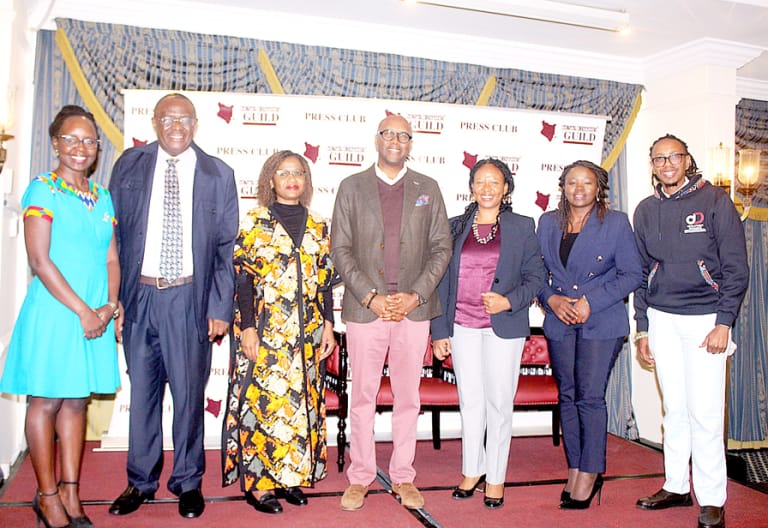Donor cuts are not a budget line adjustment but a crisis of resilience, journalists found, in a rare convening comprising also of health experts, and policymakers in a “Thought Leadership Series” to discuss the pressing implications of declining Official Development Assistance (ODA) on Africa’s health and development outcomes.
Under the theme “The Impact of ODA Cuts on Health & Development in Africa,” the event spotlighted the urgent need for local solutions and deeper media engagement as donor support continues to dwindle.
In her powerful opening remarks, KEG CEO Rosalia Omungo emphasized the critical role of journalists in shaping the public discourse on aid, health, and development.
“Our mandate to promote professionalism and excellence in journalism requires us to be intentional and accurate in how we report on complex issues like health,” she stated.
She challenged journalists and editors to go beyond superficial reporting and uncover the underlying causes and consequences of aid withdrawal.
“We must equip reporters with the right tools to tell compelling, contextual stories that highlight how these cuts affect people’s lives across Kenya and the region.”
The panel featured renowned experts including Dr. Githinji Gitahi (AMREF), Dr. Catherine Kyobutungi (APHRC), Dr. Ayoade Alakija (African Vaccine Delivery Alliance), Dr. Patrick Amoth (Ministry of Health), and Dr. Mercy Korir (Willow Media), among others.
Dr. Willis Akhwale, Special Advisor at the End Malaria Council, cautioned that donor cuts reveal structural gaps that African countries have long neglected.
“This is not just a budget line adjustment it is a crisis of resilience,” he said.
He questioned whether African governments invested wisely during the years of abundant donor funds, asking pointedly, “Did we build the systems needed for skilled human resources, innovation, and accountability—or were our priorities elsewhere?
”He further urged a paradigm shift in development strategy.
“As resources decline, sustainability must no longer be a footnote. It must become the strategy,” Dr. Akhwale asserted.
He stressed that countries must take ownership of health financing by strengthening partnerships with the private sector, philanthropists, and domestic systems.
Rosalia Omungo concluded by calling for a new narrative—one centered on African agency and shared responsibility.
“We urge reporters and development partners to reframe the narrative. African governments and stakeholders must be seen not just as beneficiaries but as co-owners of the solutions,” she said.T
he forum served as a timely reminder that journalism must keep pace with the shifting development landscape, offering the public not just information, but insight because at stake is nothing less than the future of Africa’s health systems.
The cuts are part of United States President Trump’s broader effort to reshape US foreign aid and prioritize American interests.
The Trump administration has argued that the aid program needs reform, citing concerns about corruption and dependency.

